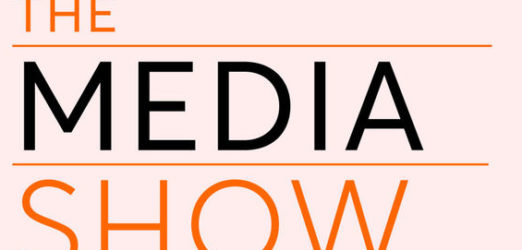I’ve been invited to take part in BBC Radio 4’s live panel programme, The Media Show, tomorrow and, frankly, I’m feeling a bit nervous! I know I shouldn’t be: I was a broadcast journalist for many years (including at the BBC) and have media trained spokespeople for almost as long. I should know what I’m doing, but I know, from bitter experience, there’s always room for improvement!
So, I’m taking some leaves out of my own media training book, in the hope of giving a good account of myself.
Successful Interviews
It is sometimes said that “Journalism is a profession whose job it is to explain to others what it personally does not understand…”
That’s where the good spokesperson comes in. A good spokesperson will enable the broadcast journalist to explain to a mass audience what the story is in a clear, simple and concise way. I’m lucky that tomorrow the topic is pretty straightforward: a discussion about the merits of a new degree being offered by the University of Salford, Journalism with Public Relations.
The perfect spokesperson
In an ideal world, a broadcast journalist would wish their interviewee to be:
- authoritative
- opinionated
- entertaining
- presentable
Above everything else though, they need you to be willing and available to do an interview. As with most news and current affairs, Radio 4’s The Media Show, will be looking for a range of views. I will be arguing that vocational degrees don’t always set students up for the work place, although if you are going down that road, a course combining the skills needed for two different careers arguably keeps your options open.
Preparation
Never agree to do a radio or a television interview unless you have time to prepare for it. Few of us are naturally excellent broadcasters. Most of us have to work at it, and preparation is key. I have listened to The Media Show before, but I’m going to download a couple of episodes to refresh myself with the programme before I teeter off to Broadcasting House. I’m also having a good think about the different points I could make.
Ask yourself the following questions:
-
- Am I the right person to do the interview?
- Who is the audience?
- Is there another side to the story?
And ask the journalist the following questions:
-
-
- Who is doing the interview?
- Is it live or pre-recorded?
- How long will the piece be?
- Who else will be interviewed?
- What’s the angle?
- What are the questions?
-
You should also:
-
-
- Know you subject and some facts or figures to support your story
- Prepare 3 main points or key messages
- Rehearse your answers
-
Performance
Above all, remember that radio or television audiences, for news or programming, are all after the same thing – entertainment.
Regardless of whether the story is serious or frivolous good spokespeople share the same qualities.
They are enthusiastic, with formed opinions and lots to say. Above all they use their opportunity, be it on radio or TV, to perform.
Presentation
I’m preparing for radio tomorrow, but if it was TV there’d be more things to think about!
Research suggests that how you look and how you behave on screen has a much bigger impact than what you actually say in a television interview.
Television opportunities are hard to come by so when you get them, you need to make the most of them. Image, therefore, is just as important as correct messaging.
You should wear clothes and have your hair in style that projects the image you want people to have of you or your company. Often this comes down to stereotypes… a corporate spokesperson should probably be suited and booted, but the spokesperson for a charity is more likely to be smart-casual.
Finally, if you’re offered make-up always say yes. And if you’re not offered make-up, please take some face powder with you to the interview. Studio lights – and even portable lights used for filming on location – can get very hot. The last thing you want is a shiny face!
Once your appearance is sorted out, think about your body language:
- BBC (bum at the back of your chair!)
- Feet firmly on the ground
- Hands in your lap
- And most important of all – eye to eye contact.
Keeping eye to eye contact with the interviewer is crucial. On television, this keeps your head in the right position for the camera. If you look away from the interviewer and your eyes turn to the floor or the ceiling, the chances are you will look shifty on screen.
Above all, as I tell everyone I media train, opportunities to go on air don’t come about that often, so when you get one enjoy it!



